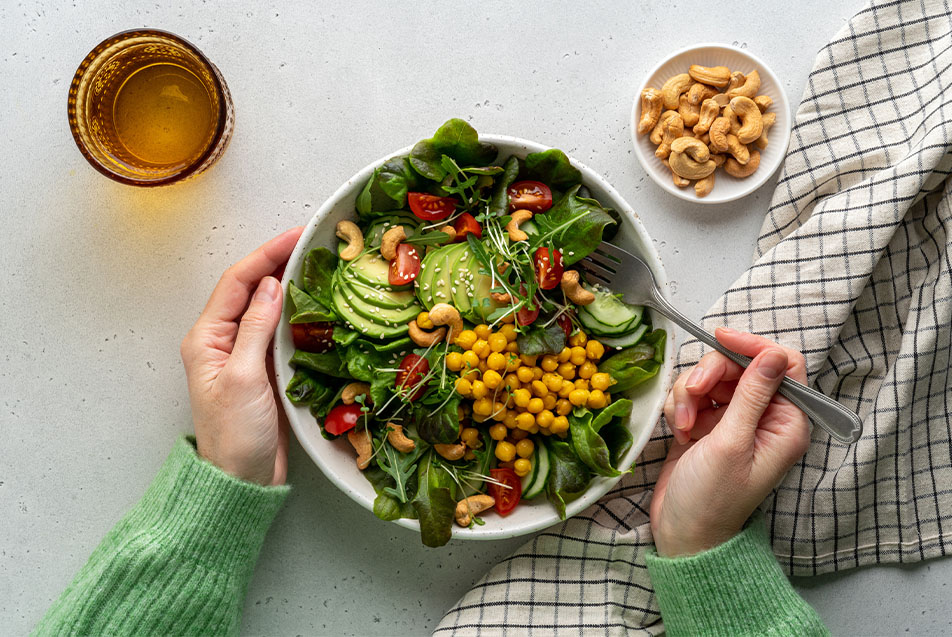
Eating healthy doesn’t have to be restrictive or complicated. Kendall Ray, MA, RDN, LD, clinical dietitian, helps answer our questions while delving into the details of a flexitarian lifestyle.
What is a flexitarian?
A flexitarian is a person who follows both a regular diet and a vegetarian diet. Think of it as flexible vegetarian or semi-vegetarian. Someone who follows a flexitarian diet will increase their plant food intake while reducing how much or often they consume meat products.
What can you eat when practicing a flexitarian lifestyle?
A flexitarian lifestyle focuses on consuming plant-based foods such as fruits, vegetables and whole grains while reducing the intake of meat products and increasing alternative protein sources like dairy, eggs, beans, lentils, nuts, seeds, soy foods and legumes. The goal is to consume less meat than you would in a typical Western diet while making half your plate fruits and vegetables at each meal.
Are there foods you should avoid as a flexitarian?
The great thing about a flexitarian lifestyle is there are no foods to avoid. You can choose how much or how little to incorporate into your daily meals and snack routine.
Is it possible to consume enough protein on a flexitarian diet?
Yes! Instead of all your protein coming from beef, pork and poultry, your intake will shift to a combination of alternate sources like nuts, seeds, beans, lentils, dairy, eggs, soy foods and legumes. Also, hitting your protein requirement will depend on how much or how little you incorporate nonmeat protein sources into your eating routine.
What’s the difference between being vegetarian and flexitarian?
The main difference between a flexitarian and vegetarian lifestyle is the consumption of meat-based protein sources. A vegetarian lifestyle does not include meat-based protein but focuses solely on plant-based eating.
What are the health benefits of following a flexitarian diet?
Some of the proposed health benefits of following a flexitarian lifestyle include better weight management and improved metabolic health regarding blood sugar, blood pressure and cholesterol.
Are there any health risks associated with a flexitarian diet?
No. Because you don't eliminate any food groups in a flexitarian diet, you can still enjoy all the benefits of each food, thus avoiding the potential for nutrient deficiencies, which we often see with restrictive diets.
Is a flexitarian diet a healthy lifestyle choice?
A flexitarian diet is considered a healthy lifestyle choice since it focuses on incorporating more plant-based foods into your diet while reducing your meat-based protein intake without getting rid of any single food group. People can choose this lifestyle for various motives, including personal, environmental or health reasons. The great thing about a flexitarian lifestyle is the flexibility it allows its participants.
How can someone get started with a flexitarian diet?
A simple way to ease into a flexitarian lifestyle would be to designate one meal per week as a Meatless Monday. You could also try swapping ground beef for beans or lentils when making tacos. Then, make them with beef, chicken or fish on your next Taco Tuesday. Other healthful flexitarian swaps could include:
- Enjoying a veggie burger instead of a hamburger
- Eating tofu instead of chicken
- Making a wrap with veggies instead of deli meat
- Using beans on a salad instead of chicken
The options for healthy and delicious meals are endless!
Sources
Healthy people, healthy planet: A flexitarian approach to sustainable healthy diets
Teaching clients the “how & why” of a flexitarian eating style
Teaching clients the “how & why” of a flexitarian eating style (references)
